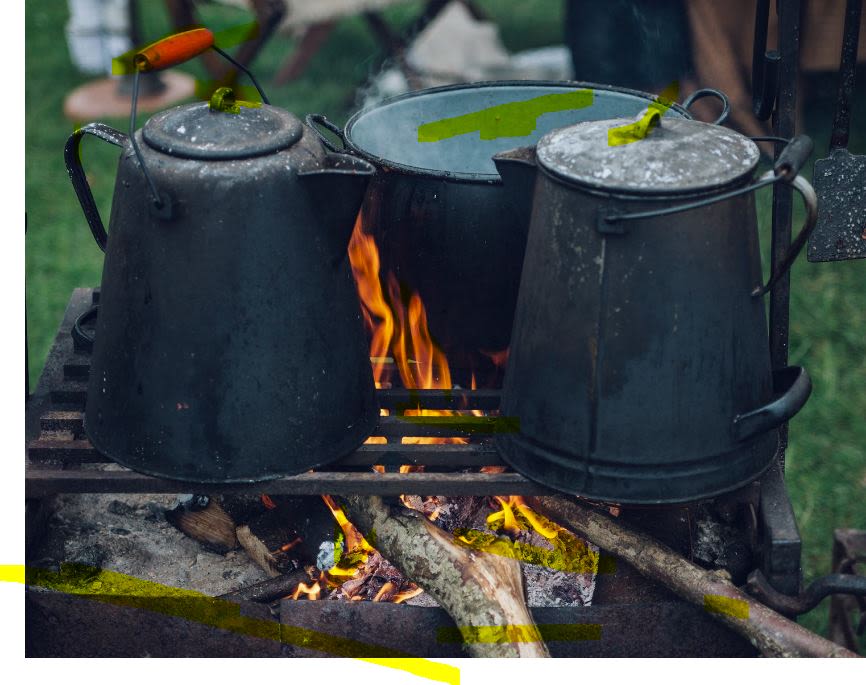Discover cheap alternative home cooking means that will save your home energy bills in Nairobi, Kenya and beyond.
With changing times, we are adjusting to better ways of doing things and, food, being a tying factor to culture and an identity factor, it is important to discuss alternative means of cooking in these modern times. Anything we do revolves around cost efficiency and saving. When we speak of alternative ways we do our cooking, we should put in mind the health, economics and environment. This said, the best place to start saving is the kitchen. We outline here a few alternative cooking methods that can keep your environment and pocket friendly.
Img: Clean cooking alliance. (pexels dot com)
The alternative fuel in Kenyan Homes.
The fuel used is a great concern in cooking in Kenya. According to the Wirock report, 30-50% of income is spent on fuel. This is almost a quarter of the income, funds that could have alternative use. Majority of Kenyan uses biomass for fuel. This ranges from firewood, charcoal to animal dung. This averages to consumption of approximately 500 million tons of renewable wood. This becomes a threat to the environment.
Environment and Forestry Principal Secretary Mr. Ali Ismail, on 21st May 2020 called on private organizations to utilize alternative sources of clean energy that don’t produce carbon dioxide emissions and greenhouse gasses which increase effects of climate change. So, what are some of the best cooking fuels?
Natural gas and LPG coooking for kenyans.
Gas has been the most popular heating energy in urban households in Kenya. This can be so much effective compared to biomass, whose incomplete combustion bringing about household pollution and soot causes hazards like respiratory illnesses like cardiovascular infections and bronchitis.
LPG gas can be easily refilled with many outlets in Kenya. For instance, with over 210 outlets in Kenya, Total Kenya provides a 6kg cylinder refill for Ksh. 1000, and that of 13kgs for about Ksh. 2170. Kenol Kobil gas also provides the same range of price with a complete cylinder with gas of 6kgs going at Ksh 3600 while refill costs about Ksh 1100. Nowadays it easy to dial gas delivery in Nairobi with the launch of M-gas, Kopa Gas (Tanzania) and Circle gas (UK) that are backed by Safaricom PLC. You can get a gas cylinder delivered to your rental home in Nairobi Kenya just by googling gas delivery service near me. Gas reticulation services in Nairobi kenya are also getting popular amongst National housing co-operation's (NHC) new projects in Nairobi, Kisumu, Nyeri, Athi River...
Compared to kerosene which goes at Ksh 67 per liter, this is the best shot. Gas cookers with pilotless ignition are energy conserving as they ensure that the gas is only turned on when needed. The heat is also regulated to avoid wastages depending on what is being cooked.
Bi-ethanol cooking in Nairobi
Ethanol based fuels are renewable liquid based fuels that can be extracted from starch. It is the best alternative since 1 liter of ethanol can replace close to 5 kilograms of charcoal, reducing carbon dioxide emissions into the air. They are extracted from fermentation of sugars from sugarcane waste, maize, etc.
Ethanol has gained popularity in Nairobi with the major distributor KOKO networks growing so fast. Koko dispenses their fuels through their automated teller machines called Koko Points powered by the Koko networks in Nairobi. Koko refills a liter at Ksh 70 and to suit the lower income earners, the refill can be as low as Ksh 30. You can always find a koko point near you.
Energy dynamics by #Sharealight
How much it costs to light an energy saving bulb in a month in a Kenyan home (Kenya power –KPLC tokens)
Power Consumption in Nairobi
- For example: An standard energy saving bulb rated 14Watts, running for 5 hours from 6pm to 11pm every day, Uses 14X5 = 70Watts per day.
- Energy Converted to Kilowatts= 0.07Kw/Day.
- Monthly consumption: For a month= 0.07X31days = 2.17Kw per month.
- The standard energy cost of 1Kw from KPLC (tokenized prepaid system) is approximately 15kes
Data by Share a light Kenya.
COOKWARE in Nairobi - Kenya.
The material of type of cookware you use also determines the amount of energy that shall be consumed. Aluminum based pots and pans can be household energy efficient. It is advisable to use ceramic material that keeps food from sticking on the pot. They also take less time to heat or boil.
It is absolutely necessary to buy cookery that you need to use. The cookware should be appropriate size and shape. For example, cooking in very large pans leaves a lot of empty space, losing heat and wastes energy. Use the appropriate size depending on what you are cooking. A flat pan/pot is energy effective since it evenly distributes heat from the burner compared to a convex one.
ENSURE YOU USE THE RIGHT METHOD FOR THE RIGHT MEALS
It is prudent to use specific methods for certain foods. To be energy effective for example, it would not be prudent to use a large pot to boil a handful of beans. This will bring wastage of heat on some parts of the pot that are unoccupied. For instance, you can use a kettle to boil water instead of a flat pan. Put lids on top of pans whenever you are boiling. This enables retain heat for faster cooking and save energy.
USE OF PRESSURE COOKER
Another milestone in cooking solutions is the use of pressure cooker. It is one of the best alternative cooking solutions as it not only saves time, but also energy. The pressure cook raises the boiling point of water speeding up the time it takes to boil. When the pressure builds up, it forces the liquid and steam into the food and the food cooks fast.
IMPROVISED COOKING STOVES in Kenya
When you visit informal settlements like Mathare in Nairobi Kenya, you will realize that most people still use open fires to cook. This has not only caused unexpected fires but also toxic emissions. For this reason, it would be prudent to encourage use of improvised cooking stoves. They are made up of clay or granite rocks, which have good density and thermal properties that enable them to store heat energy. They are also enclosed in stainless steel which are cheap to acquire and the overall simple design enables it burn biomass efficiently. This reduces indoor air pollution which according to a research by Grand Challenges Africa, is the 4th biggest killer in a third world country like Kenya. Improvised cook stoves reduce fuel consumption by 50%.
SIMPLE FUEL CONSERVATION TIPS
Pans and burners should be kept clean and shiny. This reflects heat efficiently to the surface of the pans. You can also opt to get ovens with internal fans that heat up food faster hence saves energy. Defrosting frozen food before cooking also helps save energy. It halves cooking time and save the energy that could have been used in a microwave to heat. For the case of food that requires chopping, ensure you do in smaller pieces, to cook quickly and also monitoring is easier to avoid overcooking.
Cooking may not be the biggest consumer of energy in your home, but it is something you do regularly. It is prudent to follow these tips for an efficient experience. Hao Finder is here to get homes for buy or rent in Kenya besides better home living tips in Nairobi.
Hao Finder is here to make sure that your home lifestyle in Nairobi city is smooth from the gate to the Kitchen. Our mission does not stop at finding you the most affordable house for sale in Nairobi or furnished apartments in Karen and Runda. We go further in providing your neighborhood hints on alternative cooking solutions in Kenya. Briquettes by Eco Makaa Solutions, Bioafriq Energy Machakos, Long Burn Charcoal Briquettes Nakuru.

